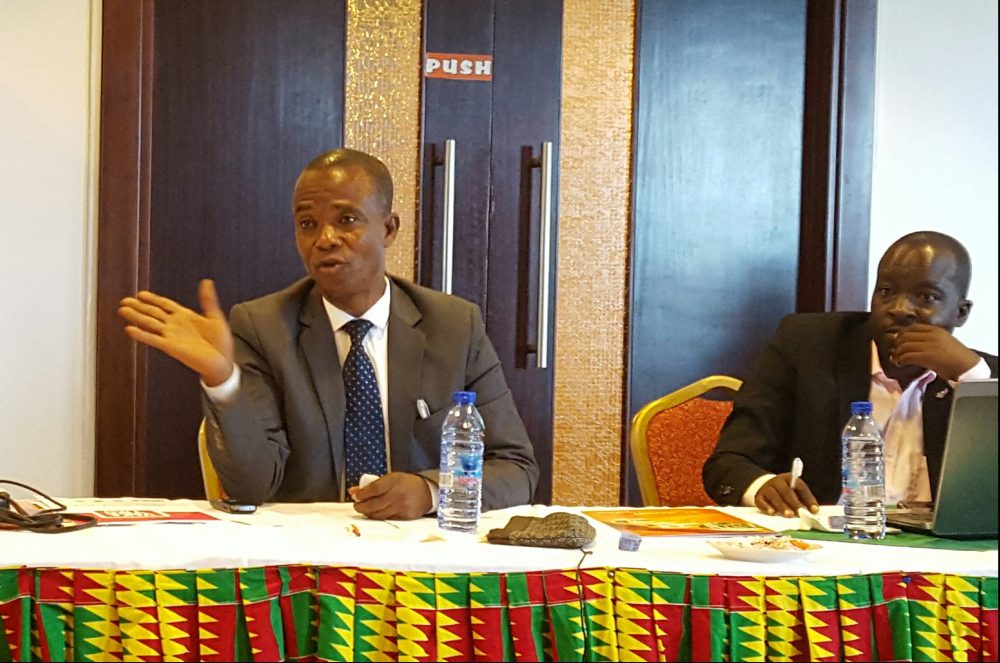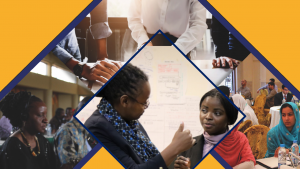
How to influence evidence use in parliaments: advice from five parliaments
Blog by Emily Hayter, with thanks to Lindsay Walker
Over the past few months we’ve held virtual and face-to-face peer learning discussions with members of the African Parliamentary Evidence Network about how Members of Parliament (MPs) and staff can work together to enhance evidence use. This informal network, which currently includes the parliaments of Kenya, Malawi, Uganda, Ghana and Zimbabwe, originally grew out of the VakaYiko programme. We’ve been pleased to be able to continue engaging with it thanks to support from the Effective Institutions Platform.
We’ll be holding a webinar in the coming months to explore these issues further, but in the meantime here are some of the common learning points emerging from the peer discussions we’ve held so far.
1. Use Orientation as an important window of opportunity
As our recent paper showed, MP turnover is a significant issue in many African countries. Some of our parliaments see between 60 and 75% turnover of MPs following an election, which can lead to a shift in attitudes around evidence. The importance of information support services can be highlighted during the parliament’s formal orientation and training programmes, which are held for new MPs. Orientation is an important moment to raise the visibility of information support services, set a positive tone around evidence, and try to attract new ‘champions’ at the beginning of a new parliament. Our partners in the parliaments of Ghana, Uganda and Kenya have all organized events linked to official orientation.
2. Get buy-in from parliamentary leadership (it’s worth waiting for)
The Speaker and the Clerk play an extremely influential role in setting the tone and institutional culture of a parliament. It is important to gain their support for promotional activities around evidence, especially where these may challenge existing organisational norms. In two of our parliamentary partners, the Speaker’s lack of availability significantly delayed promotional activities around evidence use. However, both said that it was worth waiting for this buy-in in order to influence the narrative within the institution. It is also important to keep majority and minority leaders engaged.
3. Know your MP champions Individual MPs who have a particular commitment to evidence use have played a role in promoting evidence-informed scrutiny and debate in all of our partner parliaments. We asked our parliament partners to share a bit more with their peers about who these champions are, and the responses were quite similar across countries. Experience suggests that key factors facilitating the emergence of evidence champions are: having an academic background; being an opposition MP; being involved in health; gender; and/or budgeting committees or caucuses).
Key champions emerging from our network are Hon. Dr Susan Musyoka from the Parliament of Kenya (former MP and Chair of the Evidence Informed Policy Caucus and a medical doctor) and the new Speaker of Parliament of Ghana, Professor Aaron Mike Ocquaye (former head of the Department of Political Science at the University of Ghana).
4. Remember staff can be champions too
In many countries, parliamentary research departments are poorly resourced, understaffed and lacking in visibility within parliament. The support of bigger, more influential and well-resourced departments such as Committee Services, Legislative and Procedure can be crucial to help drive demand for research and influence MPs as they are the biggest consumers of research outputs. Budget Offices can also contribute to making the case for increased capacity and resources for research and evidence. The flip side is that these departments may be competing for the same limited resources. Therefore, research departments need to be strategic in how they liaise with both MPs and other staff.
5. Make space for creative thinking
Parliamentary research and information support staff often operate under significant time pressure and resource constraints. Many staff spend considerable periods outside the office attending workshops or accompanying committee visits, and even those that are in the institution often work in silos. It’s rare that staff have the opportunity to get together and discuss how to influence institutional change around evidence use.
The Parliament of Uganda attributes several of its key innovations over the past few years to one particularly productive retreat held by the Department of Research Services. This retreat enabled brainstorming on strengthening evidence use in the institution and developing group ownership over key priorities, both of which have since been pursued with focus and clarity. Similarly, the Parliament of Ghana has recently formed an Inter-Departmental Research and Information Group which provides a focused space for information support staff to discuss evidence issues. So it’s clear that collaborative ‘thinking spaces’ (such as those facilitated through diagnostic workshops we’re currently piloting in Peru and Ghana) can go a long way towards influencing institutional culture change.
These are a few emerging learning points from our discussions so far. If you have insights to share or would like to hear more about our learnings, sign up to join the ‘Evidence use in parliaments’ webinar.
With thanks to Abraham ibn Zackaria (Parliament of Ghana), Marale Sande (Parliament of Kenya), John Mugabi Bagonza (Parliament of Uganda) and Velia Manyonga (Parliament of Malawi)




